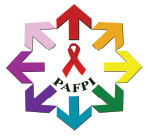#PAFPIcares Community Center in Manila
#PAFPIcares Community Center in Manila offers:
(1) Free #HIVtesting
(2) Counseling for Disclosure and Stigma
(3) Tele Medicine for Mental Health Services
(4) Early Linkage to care
(5) Adherence Counseling
(6) Health Education Workshops
(7) Self-Management Program
(8) Case Management Services and Access to ARV meds and,
(9) #undetectableuntransmittable U=U information.
PAFPI Self-management Program and Enhanced Case Finding Approach
Self-management Program
Begin by conducting a thorough needs assessment to understand the specific needs, challenges, and goals of the individuals who use the drop-in center. This can involve surveys, interviews, and focus groups to gather insights directly from the community.
Program Design: Based on the needs assessment, design a self-management program that addresses the identified needs and goals. This program could encompass various aspects such as:
Life Skills Training: Offer workshops and classes on practical life skills such as budgeting, time management, cooking/nutrition, communication skills, and problem-solving.
Health and Wellness: Provide resources and support for managing physical and mental health, including stress management techniques, exercise classes, nutrition education, and access to healthcare services.
Goal Setting and Planning: Help individuals set achievable goals for themselves and develop action plans to work towards these goals. Provide guidance and support in breaking down larger goals into smaller, manageable steps.
Peer Support and Mentoring: Facilitate peer support groups and mentoring relationships where individuals can share experiences, provide encouragement, and learn from each other.
Resource Navigation: Assist individuals in accessing community resources and services that can support their self-management efforts, such as housing assistance, employment programs, education opportunities, and legal aid services.
Implementation: Roll out the program in collaboration with staff members and volunteers at the drop-in center. Offer a variety of formats for program delivery, including workshops, one-on-one coaching sessions, support groups, and online resources.
Evaluation and Feedback: Continuously evaluate the effectiveness of the self-management program through feedback from participants, staff observations, and outcome measures. Use this feedback to make adjustments and improvements to the program as needed.
Partnerships and Collaborations: Forge partnerships with other organizations and agencies in the community to enhance the range of services and resources available to program participants. This can also help with referrals and coordination of care.
Sustainability: Develop a plan for the long-term sustainability of the self-management program, which may include securing funding, recruiting and training volunteers, and establishing partnerships with funding agencies or philanthropic organizations.
By implementing a comprehensive self-management program, the drop-in center can empower individuals to take control of their lives, build resilience, and work towards achieving their goals.
Enhanced Case Finding Approach (under #8)
An Enhanced Case Finding Approach is a proactive strategy aimed at identifying individuals who may be at risk of a particular condition or disease but have not yet been diagnosed. This approach can be integrated into prevention and testing services programs to increase the effectiveness of early detection and intervention efforts. Here’s how you might implement an Enhanced Case Finding Approach within a prevention and testing services program:
Supportive Environment: The drop-in center provides a non-judgmental and stigma-free environment where PLHIV can feel comfortable seeking assistance and connecting with others who share similar experiences.
Peer Support: Peer support programs allow PLHIV to interact with others facing similar challenges. Peer support can be invaluable for sharing experiences, providing encouragement, and building a sense of community.
Counseling Services: Professional counselors or trained volunteers offer individual and learning group counseling sessions to address the emotional, psychological, and social needs of PLHIV. Our counseling topics such as coping with diagnosis, managing stress, disclosure, and relationship issues, sex and sexuality particularly in the Elderly living with HIV
Health Education: The center provides education on HIV/AIDS, treatment options, medication adherence, prevention strategies, and managing co-occurring health conditions. Health education empowers PLHIV to make informed decisions about their health and well-being.
